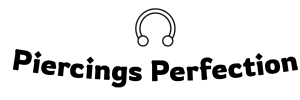If you’re considering getting your baby’s ears pierced, finding a reliable and convenient service near your location is a top priority. Not only do you want a safe and comfortable experience for your little one, but you also want a convenient and affordable option that meets your specific needs. As you search for baby ear piercing near me, be sure to do your research and choose a trusted provider who understands the unique needs of infants and young children.
Key Takeaways:
- Finding a safe and convenient baby ear piercing service near your location is crucial.
- Research and choose a trusted provider who understands the unique needs of infants and young children.
- Consider both safety and convenience when selecting a baby ear piercing service.
- Ensure that the service you choose follows proper sterilization procedures and uses hypoallergenic materials.
- Be prepared to care for your baby’s pierced ears after the procedure to minimize the risk of infection and promote proper healing.
Types of Baby Ear Piercing
When it comes to ear piercing for babies, there are several options available. The most common type is traditional lobe piercing, which involves piercing the lower, fleshy part of the earlobe. Other popular options include helix piercing, which involves piercing the cartilage at the top of the ear, and cartilage piercing, which can be done at various points along the outer ear.
It’s important to keep in mind that infant ear piercing may have cultural and religious significance, and can also be a fashion statement. No matter the reason, be sure to choose a piercing method that is safe and appropriate for your baby’s age and development.
The Baby Ear Piercing Procedure and Aftercare
When it comes to piercing your baby’s ears, safety should always be the top priority. To ensure a safe and comfortable experience, it is essential to choose a professional and reputable piercing studio that follows proper sterilization techniques and uses high-quality, hypoallergenic earrings.
During the piercing procedure, your baby’s earlobes will be marked with a sterile pen to ensure that the earrings are placed symmetrically. The piercer will then use a sterile, single-use piercing needle to create tiny holes in the earlobes. The process is quick and typically causes minimal pain. The earrings will then be inserted, and the piercer will provide instructions for proper aftercare.
Aftercare is crucial in ensuring proper healing and preventing infection. You should clean your baby’s earlobes twice a day with a sterile saline solution and avoid touching the earrings with dirty hands. Additionally, you should turn the earrings gently twice a day to prevent them from sticking to the skin. It’s essential to keep the earrings in place for at least six weeks to prevent the holes from closing, and avoid changing them before the piercings are fully healed.
At Safe Piercing Studio, we provide safe, professional, and affordable baby ear piercing services. Our piercers are trained to work with infants and use the latest piercing techniques to ensure a safe and comfortable experience. Contact us today to schedule an appointment.
Conclusion
In conclusion, baby ear piercing is a personal choice that should be made after careful consideration and consultation with healthcare professionals. There are many baby ear piercing services available, but it is important to choose a reliable and professional piercing studio to ensure a safe and comfortable experience for your little one.
Whether you decide to have your baby girl or baby boy’s ears pierced is entirely up to you, and you should prioritize their health and well-being above fashion trends or cultural traditions.
Remember to follow the aftercare tips provided by your piercing studio to ensure proper healing and minimize the risk of infection. With the right care and attention, your baby’s ear piercings should be a beautiful and hassle-free addition to their appearance.
FAQ
Q: Can babies get their ears pierced?
A: Yes, babies can get their ears pierced. However, it’s important to ensure the procedure is done safely and by professionals who specialize in baby ear piercing.
Q: At what age can babies get their ears pierced?
A: The appropriate age for ear piercing varies and is a personal decision made by the parents. Some parents choose to get their baby’s ears pierced as young as a few months old, while others prefer to wait until the child is older. It’s advisable to consult with healthcare professionals and ensure the baby is healthy before getting their ears pierced.
Q: How can I find a reliable and safe baby ear piercing service near me?
A: You can search online for local baby ear piercing services or ask for recommendations from friends, family, or pediatricians. Look for studios that adhere to strict hygiene practices and use sterile piercing equipment. It’s also important to ensure the piercer is experienced in working with babies and uses gentle techniques to minimize discomfort.
Q: What types of baby ear piercing are available?
A: The most common type of baby ear piercing is a traditional lobe piercing, where the piercing is done on the earlobe. However, there are other options available, such as helix piercing and cartilage piercing. These options may be more suitable for older babies or toddlers.
Q: Is baby ear piercing safe?
A: When done by professionals using proper techniques and sterile equipment, baby ear piercing can be safe. It’s important to choose a reputable piercing studio and ensure the piercer follows strict hygiene practices. Discuss any concerns or questions with the piercer before proceeding.
Q: How do I take care of my baby’s newly pierced ears?
A: After getting your baby’s ears pierced, follow the aftercare instructions provided by the professional piercer. This may include cleaning the pierced area regularly with a saline solution and avoiding the use of harsh chemicals or products. It’s important to watch for any signs of infection, such as redness, swelling, or discharge, and seek medical attention if needed.
